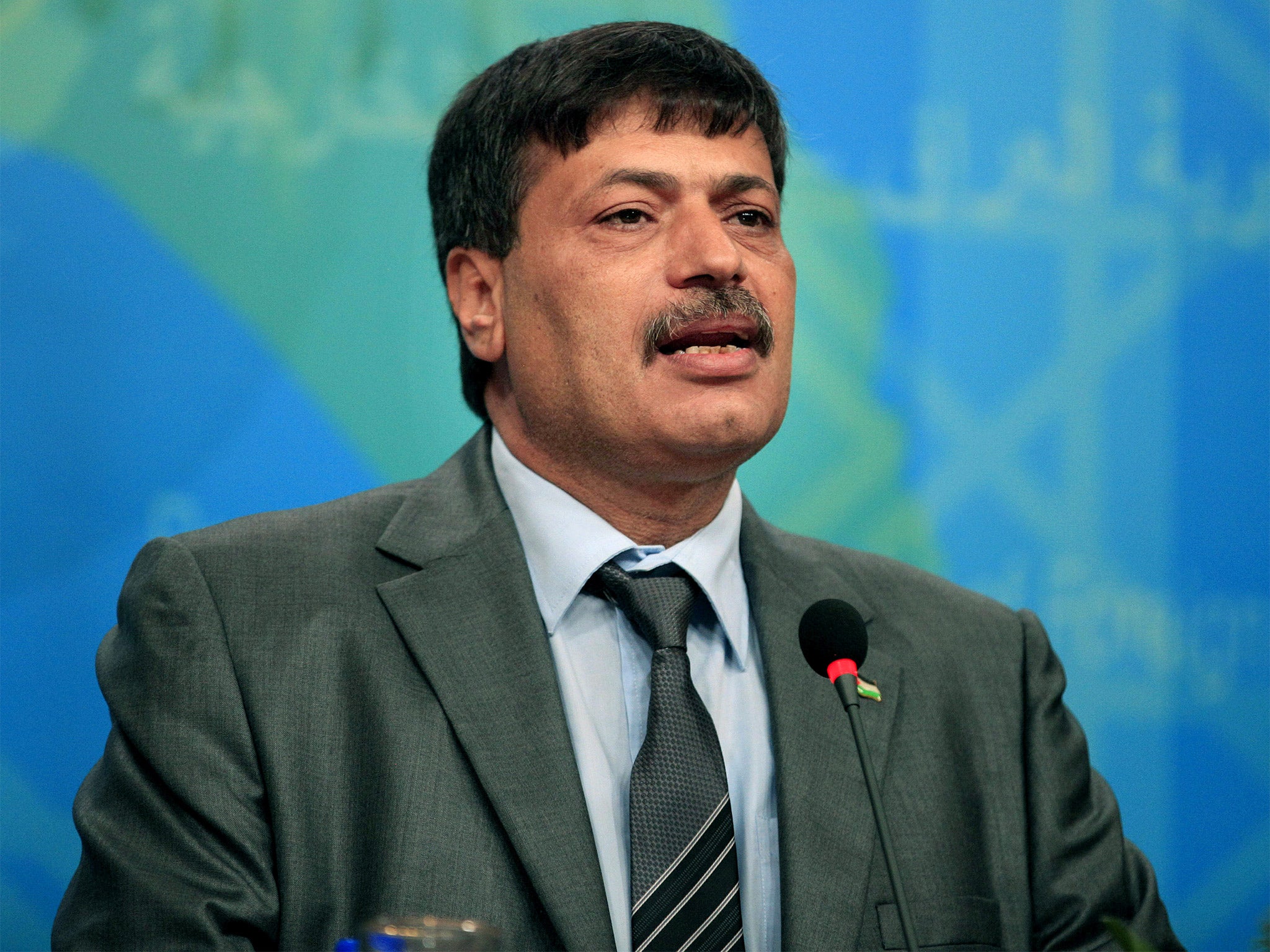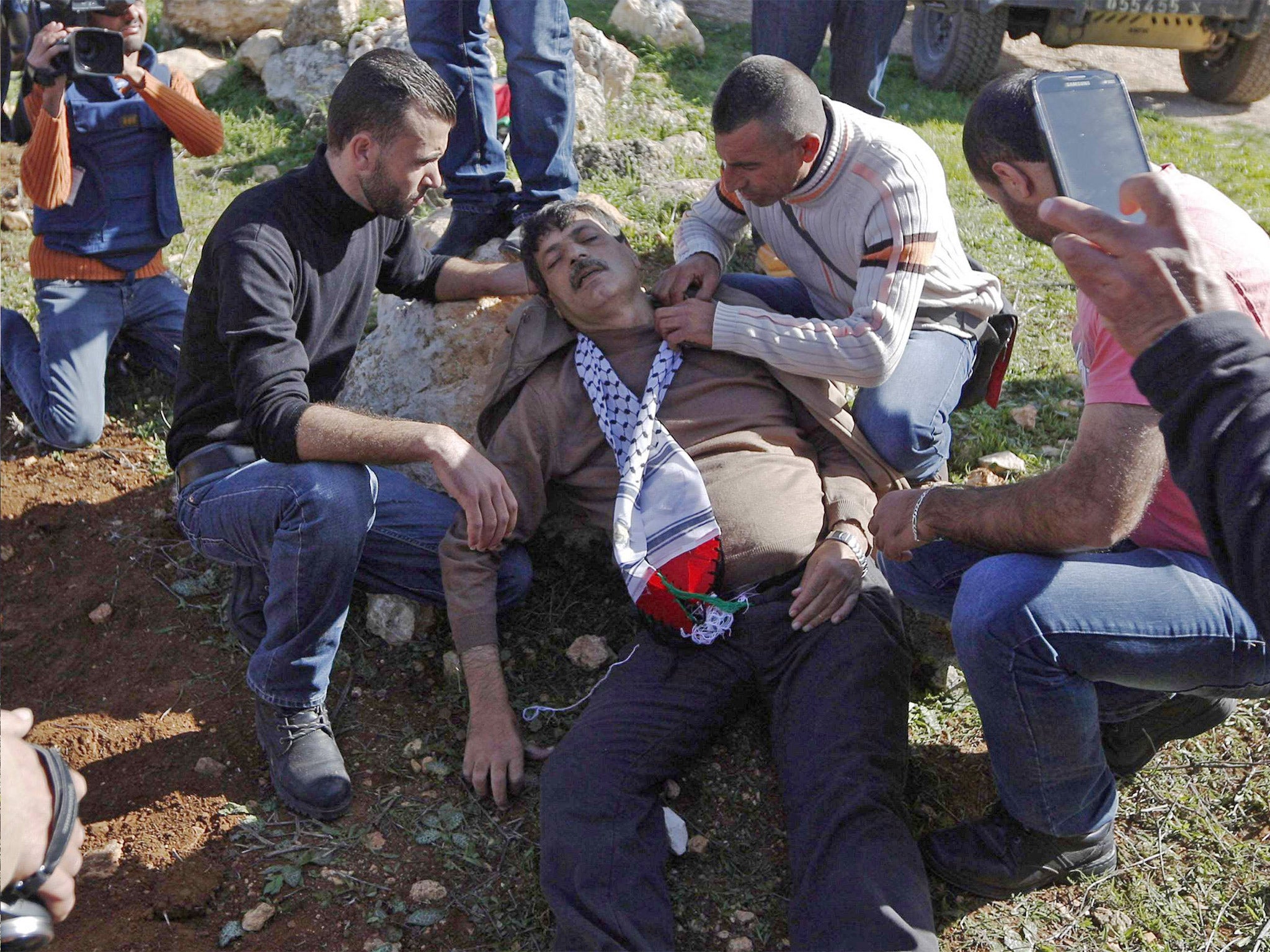Death of Ziad Abu Ein: One autopsy, two very different findings
Palestinians believe Israel killed Ziad Abu Ein

Your support helps us to tell the story
From reproductive rights to climate change to Big Tech, The Independent is on the ground when the story is developing. Whether it's investigating the financials of Elon Musk's pro-Trump PAC or producing our latest documentary, 'The A Word', which shines a light on the American women fighting for reproductive rights, we know how important it is to parse out the facts from the messaging.
At such a critical moment in US history, we need reporters on the ground. Your donation allows us to keep sending journalists to speak to both sides of the story.
The Independent is trusted by Americans across the entire political spectrum. And unlike many other quality news outlets, we choose not to lock Americans out of our reporting and analysis with paywalls. We believe quality journalism should be available to everyone, paid for by those who can afford it.
Your support makes all the difference.Israeli and Palestinian pathologists announced very different conclusions about the autopsy they performed jointly on senior Palestinian official Ziad Abu Ein Thursday, with the Palestinian side saying he died as a result of being struck by a soldier and the Israeli side concluding his death stemmed from a pre-existing heart condition that made him vulnerable to stress.
The findings set the stage for ongoing acrimony over the death, with the Palestinians believing Israel killed the official and Israelis rejecting responsibility for the death.
Both sides agreed that Mr Abu Ein, 55, died from a blockage of the coronary artery due to haemorrhaging. But they differed on the causes. The Israeli team, headed by Chen Kugel, director of Israel’s forensic institute, found that Mr Abu Ein suffered from an “ischemic heart disease” and that blood vessels in his heart were found to be more than 80 per cent blocked by plaque, according to an Israeli health ministry statement. “This caused him to be more sensitive to stress,” the statement added.
Saber al-Aloul, head of the Palestinian forensic institute, said Mr Abu Ein died as a result of being hit. “The death is considered to have originated from injury and not natural causes,” he said. “The coronary artery became narrower, this is accompanied with a haemorrhage in the inner lining of the artery and this is one of the signs of stress and agony by which I mean the bruises in the neck and face. There was stress, pressure and a sign of terror.”

Mr al-Aloul said that the bruises found on the neck proved that force had been used against it. He added that some of Mr Abu Ein’s front teeth were knocked out. The Israeli team said there were signs resuscitation had been attempted. Palestinian Health Minister Jawad Awad said that “the results of the autopsy show that the ones who killed the martyr Ziad Abu Ein are the Israeli occupying forces”.
He said two Jordanian pathologists also signed off on those findings, but not Israeli doctors.
Azzam Ahmad, a senior leader of President Mahmoud Abbas’s Fatah movement, voiced anger at the findings of the Israeli pathologists. “Enough with their lying and cheating. The report proved he was subjected to beatings. The occupation is first and last responsible for this death.”
An Israeli official, who requested anonymity, said in response to the autopsy: “It’s clear no one on the Israeli side wanted to see this death. We’ve expressed sorrow and regret.”
Join our commenting forum
Join thought-provoking conversations, follow other Independent readers and see their replies
Comments